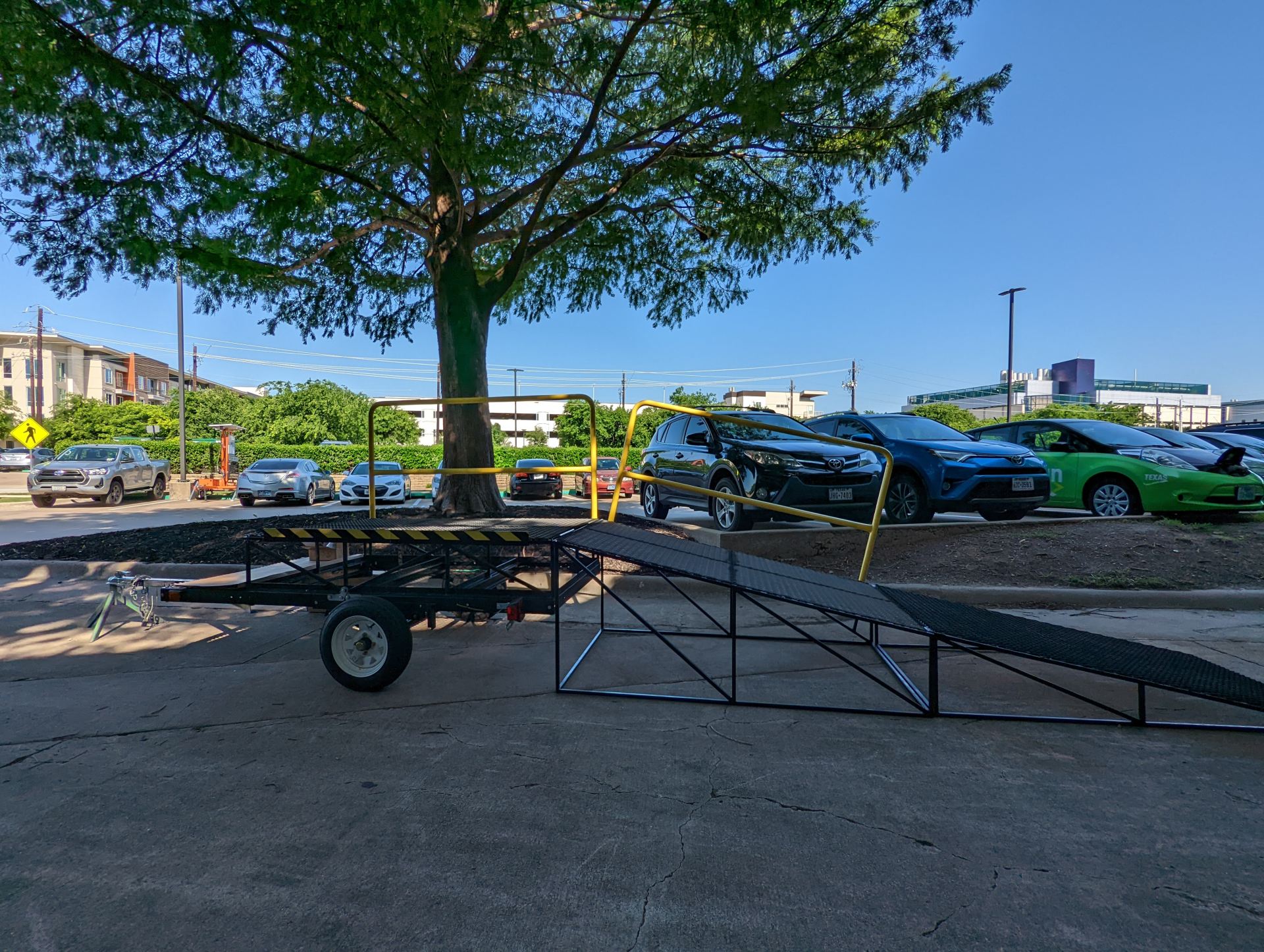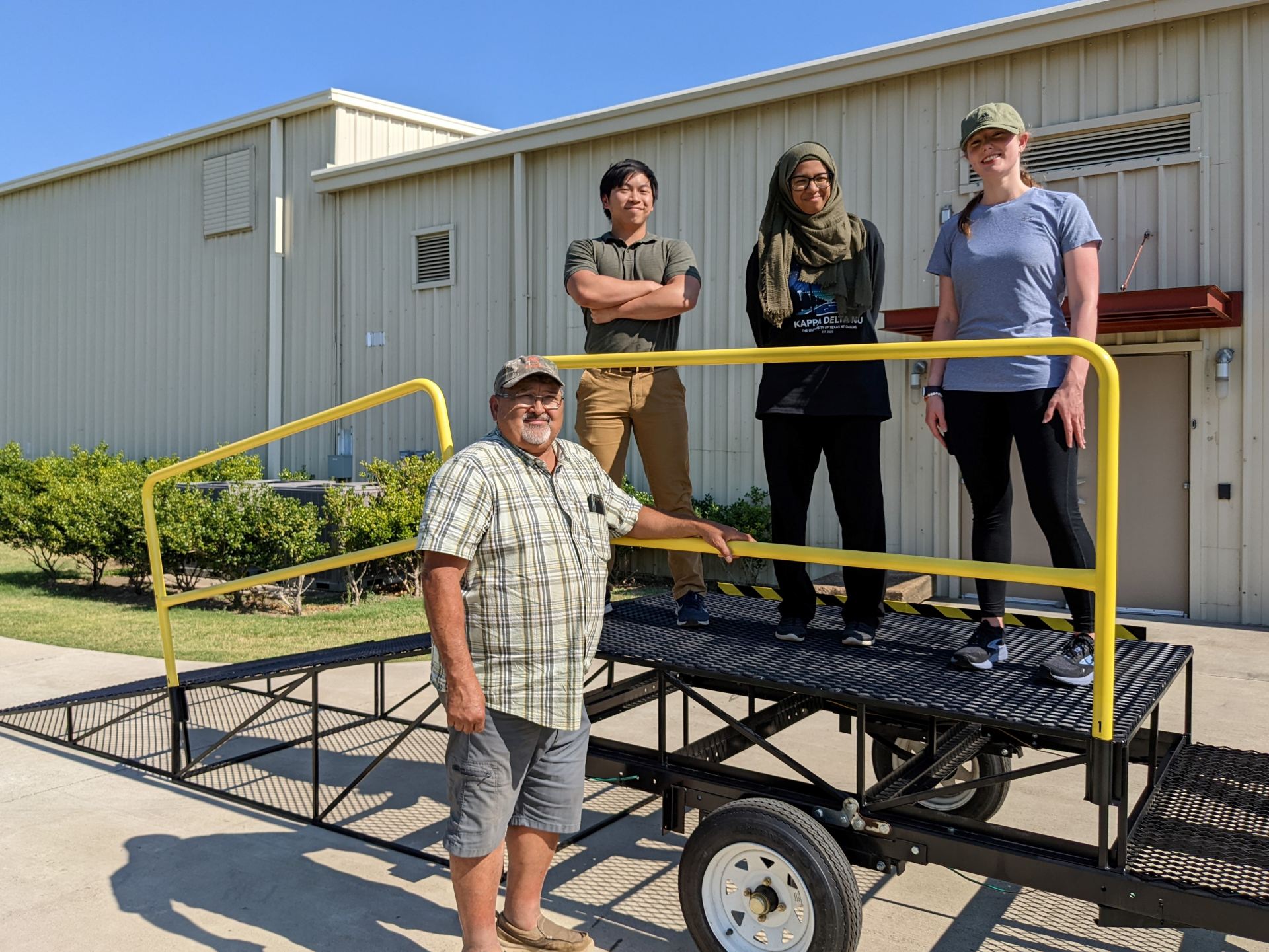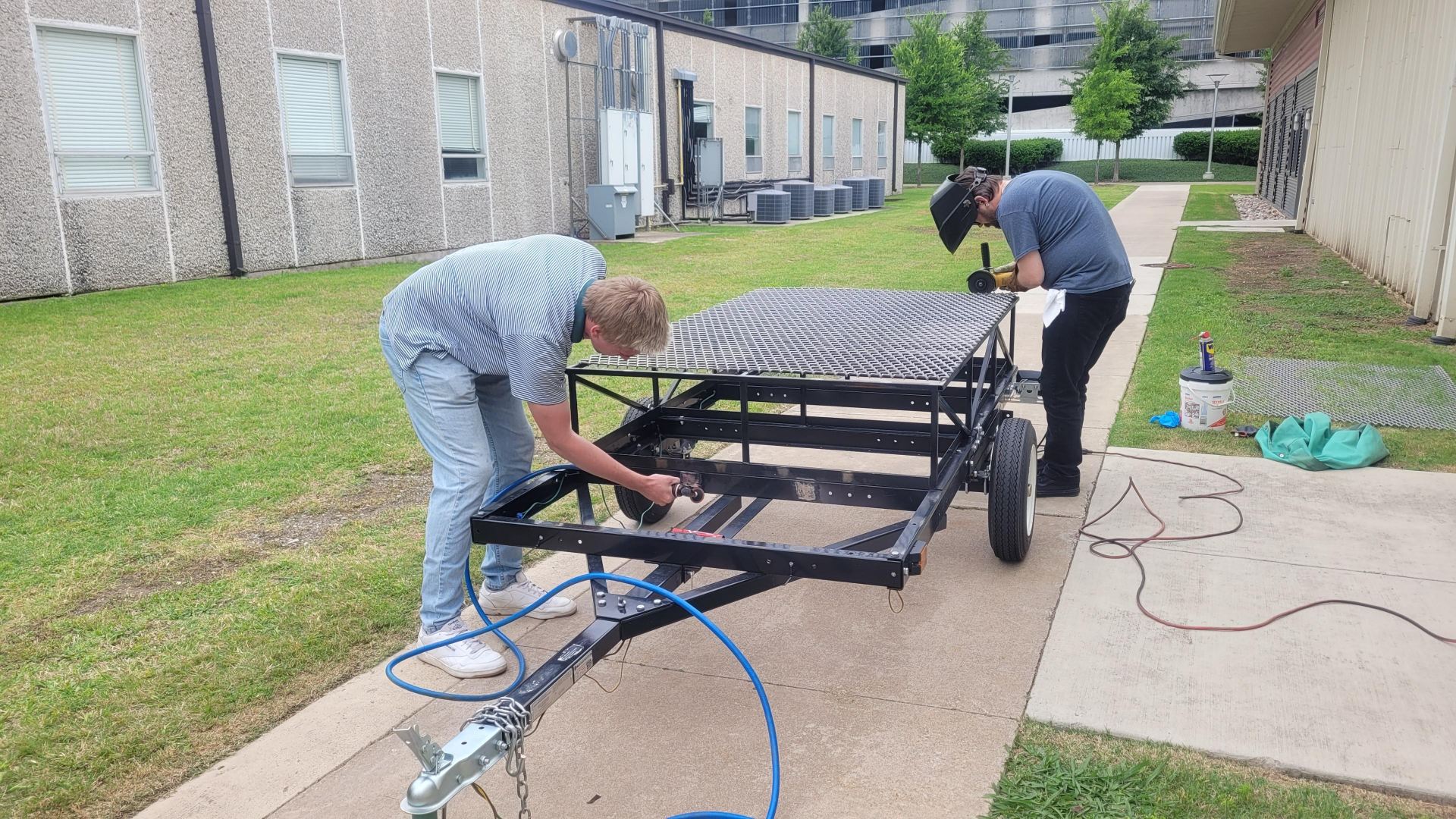Engineering for Good: Building a Horse Mounting Ramp for People with Special Needs
July 1, 2022

As part of its efforts to actively support community building, the UTDesign program in the Erik Jonsson School of Engineering and Computer Science at UT Dallas supports a program called EPICS (Engineering Projects in Community Service), which gives undergraduate students of any major a chance to work on social good projects in collaboration with non-profit organizations. The students develop solutions to problems that greatly impact society by utilizing the knowledge gained in the classroom and the EPICS design studio.
For about 40 years, Equest, a non-profit organization based in Dallas, Texas, has provided equine therapy and activities for people with special needs and disabilities. A few of their programs include equine assisted learning, therapeutic riding, and counseling. By leveraging the power of horses and equestrian sports, Equest instructors are able to give physical, cognitive, social and all-round support to children and adults with disabilities.
To help Equest achieve its mission, a team of four Mechanical Engineering students known as the Neigh Sayers came together in Spring 2022 to complete the design and improve the functionality of a portable horse mounting ramp which was previously built other EPICS teams. With this ramp, Equest clients can safely and easily mount a horse whenever they engage in equine activities.

UTDesign caught up with two of the team members, Zainab Afsar Faheem and Chris Byung-Jun Kim to chat about their project, working with Equest and the value of the EPICS experience. Here are their comments:
1. Why did you decide to join the EPICS Program?
Zainab: I was interested in taking a program where I could apply what I was learning and gain new technical skills.
Chris: I took the initiative to join the EPICS program because I was interested in tackling a hands-on project that is beneficial to the community.
2. Tell us about your project in a few words and also about the non-profit organization you worked with?
Chris: My project (the Equest Portable Mounting Ramp) focuses on providing transportable horse-mounting assistance to wheelchair-bound individuals—allowing them to partake in therapeutic and exciting equestrian activities at any location. The non-profit we worked with is called Equest, which is an organization that aims to enhance people’s lives with horses and horse activities.
3. How beneficial do you think your project will be for the non-profit?
Zainab: I think the project will be greatly beneficial to the non-profit in fully realizing its objective of providing a therapeutic equestrian experience to its members regardless of physical limitations.
Chris: I feel that our portable mounting ramp would be very beneficial to our project partner because the ramp would allow them to expand their operations to off-site locations—allowing their services to reach more individuals.

4. What skills did you need to complete the project (hard technical skills/knowledge from the classroom and or software)?
Chris: The main skills needed for this project were the ability to work with hands-on tools, knowledge in computer-aided design software, and mechanical design.
5. What soft skills did you develop in the course of the project?
Zainab: Communicating ideas to colleagues, supervisors, and people with different levels of technical experience. Working with the specifications of a real client and identifying problems instead of having the problem handed to you.
Chris: This project helped me mainly with learning how to better communicate and coordinate with team members. In addition, the constant process of reviewing the project with the EPICS faculty and presenting at the end helped improve my ability to explain and communicate ideas to others.

6. What major challenges did you encounter in the course of the project?
Zainab: Designing something compact, easy to handle, and robust. Trying to complete tasks in time despite the long hours it takes to fabricate and work on the final product.
Chris: The main challenges my team members and I faced were struggles with the design decision/selection process, coordinating with somewhat long purchase arrival times, and hands-on fabrication work.
7. Would you encourage other students to participate in EPICS? If yes, why?
Zainab: Yes, it definitely exposes you to think about real-life limitations, such as budget, customer requirements, and manufacturing constraints when it comes to design. It also teaches you to work/discuss ideas with people of different technical backgrounds.
Chris: I highly encourage students to participate in EPICS, especially if you’re a new student who wants to start gaining project experience! This course will definitely help students by teaching them the fundamentals of team-based project work and engineering design, and by giving them a resume boost in their undergraduate years.
8. If you could do it all over again what would you do differently?
Zainab: I would plan out the semester timeline more vigorously so that tasks don’t get pushed towards the end of the semester and be more organized when it came to the design process so that certain components would not get forgotten or overlooked as we worked.
Chris: If I could start this project again, I’d try to focus on getting purchases made early in the semester (at least for the parts that we were sure about purchasing). We had too much pressure on our shoulders nearing the end of the semester due to our constant waiting on purchased parts and little time to assemble them together.
9. How valuable do you think the EPICS experience was for the team?
Zainab: Very valuable. It gave insight into the engineering design process as well as the manufacturing process that happens behind the scenes. Having different roles within the team also taught us to bring the information together from the different tasks each member had and use it to propel decisions forward.
Chris: I feel that this EPICS experience was really valuable for the team since it helped us get a glimpse of real-world engineering work and pushed us to get involved with the manufacturing/fabrication side of product design.
To learn more about their project, go to https://sites.utdallas.edu/epics-equest/
For more information about the EPICS program, please visit https://epics.utdallas.edu/